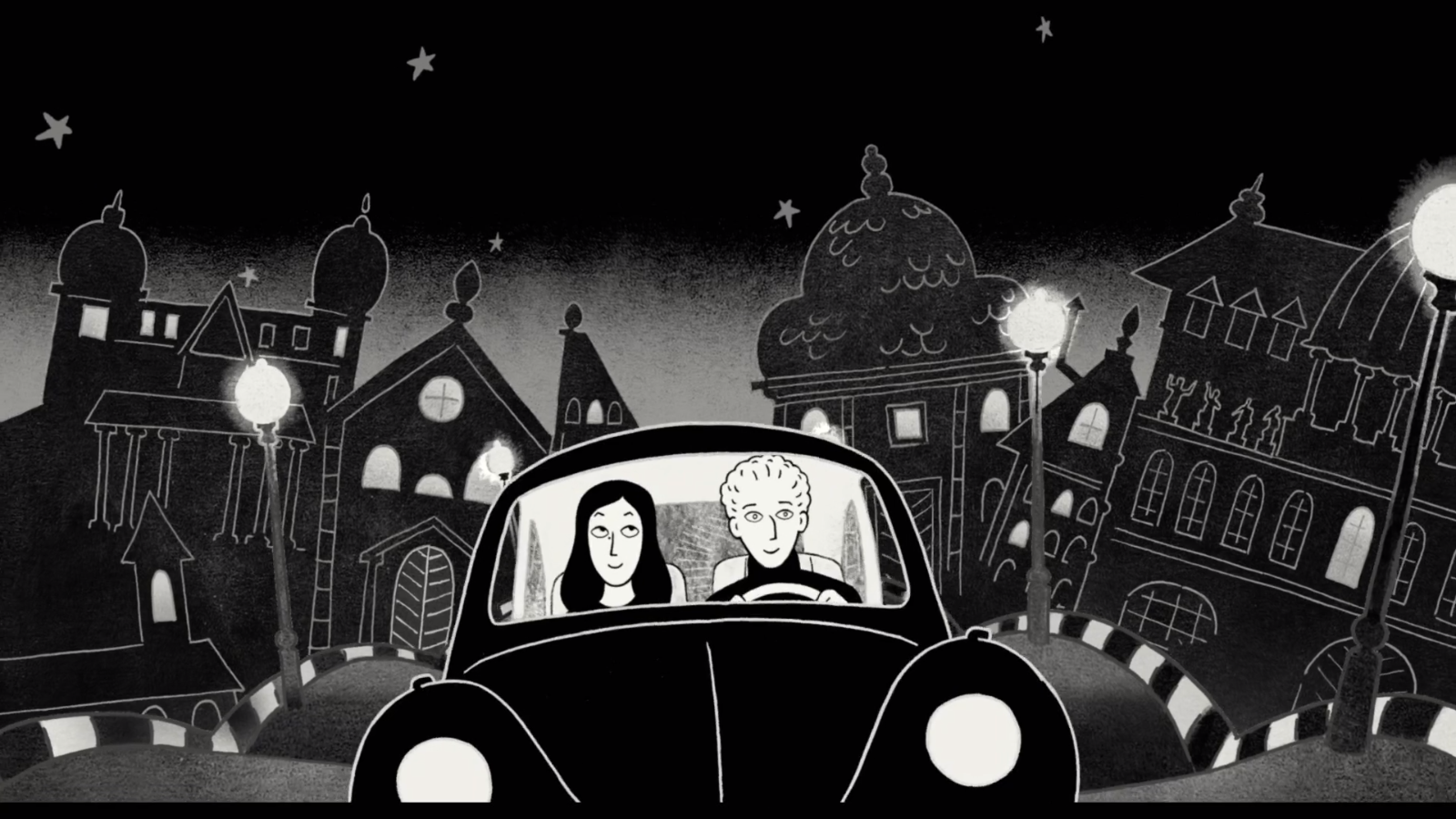“Persepolis,” originally a comic strip, or bande dessinée in Franco-Belgian comics, is this year’s Sinclair Book Club book; a book about Iran and religious fervor, and the people stuck inside, living normal, everyday lives, at a time in which Iran’s place in the world and the presence of zealous fervor and nationalism are frightfully alive in our own country.
Originally written in two volumes in 2000 and 2004 respectively, by Iranian born artist and writer, Marjane Satrapi, the book tells the story of Satrapi’s childhood growing up in Iran, starting in ‘79, shortly after the Iranian Revolution.
The book’s second half deals with Satrapi’s time in a boarding school in Vienna, as her family had sent her away from Iran out of fear of the barbarous regime in power.
The book’s name, “Persepolis” comes from the former Persian Empire’s capital, an empire that was rooted in what is now modern-day Iran.
Originally published in Ohio, the book was one of the “Most Challenged Books” of 2014, according to the American Library Association (ALA), an annual booklist that compiles the books most often blocked for usage in classrooms.
Related Articles
As a reader of the book myself, I can say that it is an often humorous book but that it is simultaneously uncompromising in its depiction of life in a country torn apart by political and religious fanaticism. That being said, it is no worse, arguably, than most of the other books that line the lists of banned books.
“Persepolis tells the story of a young Muslim woman growing up in Iran,” said Multifaith Campus Chaplain, Larry Lindstrom, in the opening book club meeting. “Her experience of religious and political intolerance might sound very foreign to our minds. But I want to suggest that we can find common ground with her and can learn from her experience, as we take religion as our point of entry into this story.”
“My second point is that every religious community interprets that faith tradition for its own context,” said Lindstrom, later in the introduction. “What we find in Persepolis is a nation where the predominant interpretation of Islam combines strict adherence to the sacred texts with a strongly conservative cultural outlook. And maybe the best way for us to make sense of that reality is to recognize that we have many groups here in America who are seeking to do the same thing.
“Consider the Christian groups who focus on their sacred texts and read them through a lens of cultural conservatism. The results for those groups are communities that look remarkably like what the author describes in Iran: a culture where men are given a status significantly higher than that of women. A place where the rules for daily living are clearly laid out and strictly enforced.”
Though chosen well before recent events, the book’s selection comes at a time in which both strict adherence to conservative religious values and overt-nationalism are being questioned in our own society and the prospect of conflict with Iran looms in the distance.
Iran and most of its people, most of whom, as the book highlights, are normal, non-radicals, much like many of the religious people here in the U.S. both of the Islamic faith and the other Abrahamic religions, as well as those of non-Abrahamic faiths.
The January third killing of Iranian general and figurehead Qasem Soleimani has brought the often isolated Iran back into the news, as we collectively ponder the concept of war with a country that has long been one of the Western Powers’ biggest enemies in the region.
“Another thing is that for 10 years we have been naming the evil – pointing to ‘the axis of evil,’” said Satrapi in a Guardian interview in 2008. “Naming the evil is the most dangerous thing to do; that is the beginning of fascism. If the evil is the people of one place or one country, well, let’s go and exterminate all of them… I am just an artist and my duty is to ask questions.”
Her sentiment questions the idea that rather than viewing a country as an enemy, we must instead look beyond that and look at the people, who are much like ourselves in terms of agreeing with our government and its actions, and thus, not wholely responsible for those actions.
It’s a message that rings true even in this country and asserts that in looking at the monolithic “enemy,” the “Eurasia” or “Eastasia,” antagonists to “Oceania” of Orwell’s “1984,” the preeminent book on fascistic, fanatical nationalism, are ultimately made up of a great number of people, all with differing viewpoints, many of whom run contrary to the state’s zeitgeist.
Find out more information and join the Sinclair Book Club by visiting Building 8, room 8025.
Richard Foltz
Executive Editor

